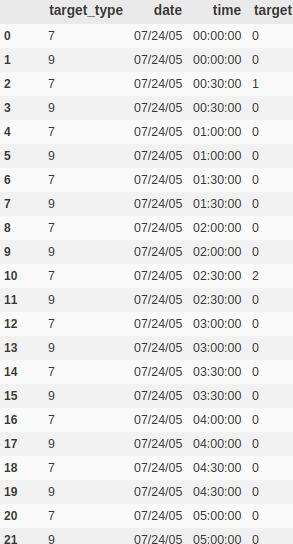I have a dataset, which contains DateTime, target, target_type. target is basically the count of a process. target_type is binary and it says if the count was of the type, say "outflow" or of type, say "inflow".
this has been recorded at periodic intervals. what I would like to do is, predict target for the next n time intervals, let's say next 5 intervals.
my question is, which approach should I look into? arima? lstm? markov-modulated Poisson process? or something else.
another thing that I'm confused is, I'm unable to figure out if I should treat this as a multivariate time series data, (i.e if I one hot encode the target type variable.
so the dataset looks like this:

